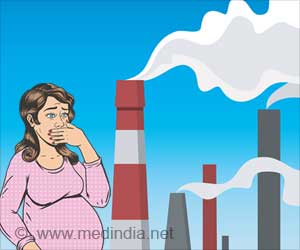Unchecked climate change could cause a flood of new environmental migrants to Europe. It is a "threat multiplier" which "intensifies existing trends, tensions, and instability."
Unchecked climate change could cause a flood of new environmental migrants to Europe. It is a "threat multiplier" which "intensifies existing trends, tensions, and instability,” apprehends a report by European Union foreign-policy chief Javier Solana and Benita Ferrero-Waldner, the European commissioner for external relations.
Reacting to the report, Dirk Messner, director of the German Advisory Council on Global Change, said, "There's really a new approach and perspective developing…Climate change has been addressed until very recently as an environmental problem. ... But dangerous climate change, beyond 2 degrees or so, will result in a destabilization processes around the world."In 2007, the Solana report notes, all but one of the emergencies for which the UN appealed for humanitarian aid had climate dimensions. And new trading routes are opening in the Arctic as the polar ice caps melt, shifting the balance of power in the region.
The report echoes a widely cited 2007 study by 11 retired American admirals and generals issued by CNA Corporation, a Virginia think tank, points out Nicole Itano, writing in Christian Science Monitor.
In the circumstances, the stark warning from such high-ranking EU officials is likely to invigorate the debate in Europe about the links between climate and security -- as well as highlight the urgency of coming to some sort of global agreement on reducing greenhouse-gas emissions.
Europe, experts say, is not likely to experience climate-related instability within its own territory -- the brunt of the impact of global warming is likely to fall on the world's poor. But on the Continent's borders are regions, such as North Africa and the Middle East, that are both political fragile and acutely vulnerable to climate change.
"Migration is the real biggie," says Jeffrey Mazo, an expert on climate and security at the International Institute for Strategic Studies in London. "What's causing the migration is food insecurity and water insecurity and general insecurity in developing nations that don't have the infrastructure to cope with climate change impacts."
Advertisement
Many believe that European officials are still uncertain of the scale of the potential problems caused by climate change. One often-cited estimate predicts that there will be 200 million climate migrants by 2050. But others put the figure nearer 20 million.
Advertisement
Indeed, there's increasingly consensus that a crisis is looming, and experts say that a Europe-wide immigration policy -- taking into account the issue of environmental migration -- will have to be developed. The new EU foreign-policy representative, who will be appointed next year, will have to put climate issues at the top of the agenda.
"It's not just the European Union coming together," says Dr. Mazo. "Climate change is as much an opportunity as it is a threat on the security front, for strengthening all sorts of regional and global institutions."
Linking climate change to security is key to the issue being taken more seriously by Europe's political leaders. Dr. Messner says that until recently, climate change was the domain of environment ministers, who generally had relatively little power. Now, it's the realm of presidents and prime ministers.
"A wider community of the political class is seeing climate change as a serious issue," says Messner, who cites as an example the response of the German foreign minister to a recent report issued by his organization. "The political decisionmakers are now understanding what is going on."
Source-Medindia
GPL/L






